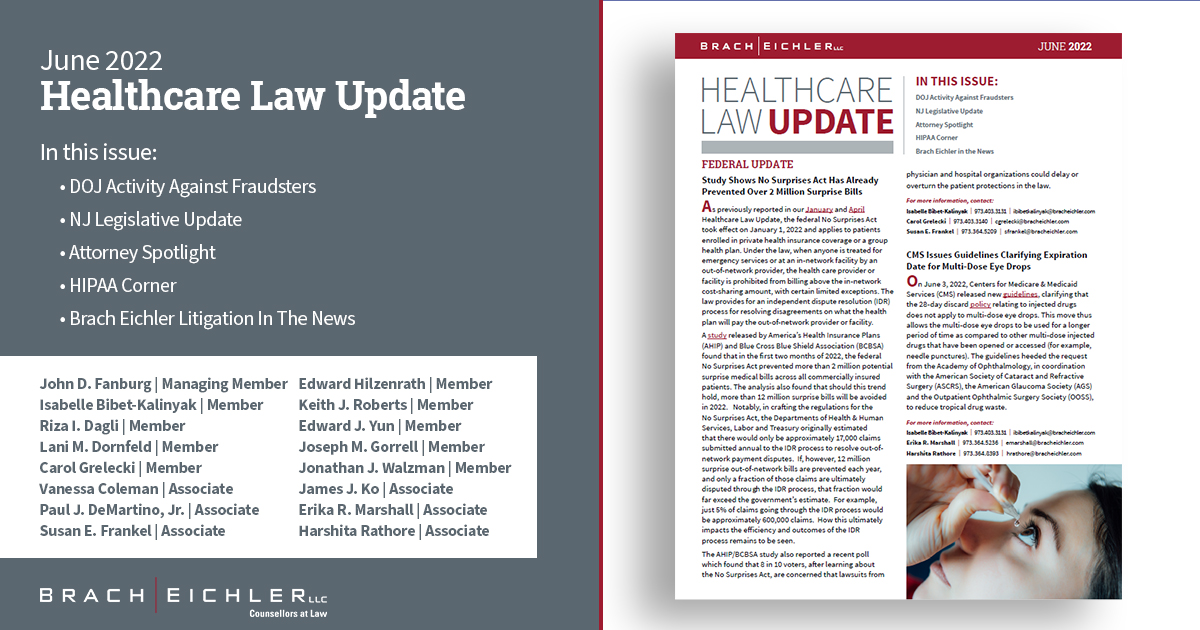
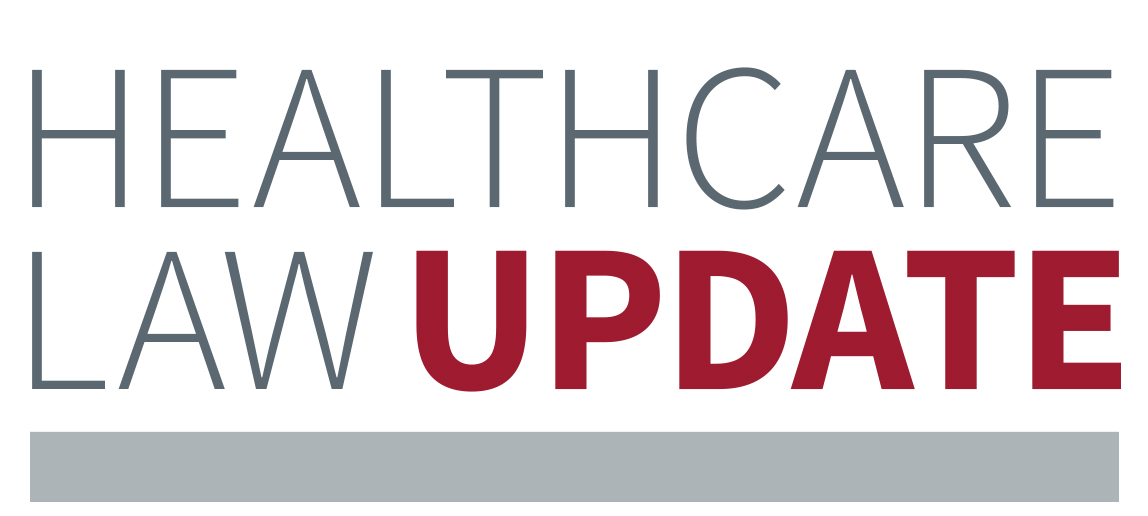
As previously reported in our January and April Healthcare Law Update, the federal No Surprises Act took effect on January 1, 2022 and applies to patients enrolled in private health insurance coverage or a group health plan. Under the law, when anyone is treated for emergency services or at an in-network facility by an out-of-network provider, the health care provider or facility is prohibited from billing above the in-network cost-sharing amount, with certain limited exceptions. The law provides for an independent dispute resolution (IDR) process for resolving disagreements on what the health plan will pay the out-of-network provider or facility.
A study released by America’s Health Insurance Plans (AHIP) and Blue Cross Blue Shield Association (BCBSA) found that in the first two months of 2022, the federal No Surprises Act prevented more than 2 million potential surprise medical bills across all commercially insured patients. The analysis also found that should this trend hold, more than 12 million surprise bills will be avoided in 2022. Notably, in crafting the regulations for the No Surprises Act, the Departments of Health & Human Services, Labor and Treasury originally estimated that there would only be approximately 17,000 claims submitted annual to the IDR process to resolve out-of-network payment disputes. If, however, 12 million surprise out-of-network bills are prevented each year, and only a fraction of those claims are ultimately disputed through the IDR process, that fraction would far exceed the government’s estimate. For example, just 5% of claims going through the IDR process would be approximately 600,000 claims. How this ultimately impacts the efficiency and outcomes of the IDR process remains to be seen.
The AHIP/BCBSA study also reported a recent poll which found that 8 in 10 voters, after learning about the No Surprises Act, are concerned that lawsuits from
physician and hospital organizations could delay or overturn the patient protections in the law.
For more information, contact:
Isabelle Bibet-Kalinyak | 973.403.3131 | ibibetkalinyak@bracheichler.com
Carol Grelecki | 973.403.3140 | cgrelecki@bracheichler.com
Susan E. Frankel | 973.364.5209 | sfrankel@bracheichler.com
On June 3, 2022, Centers for Medicare & Medicaid Services (CMS) released new guidelines, clarifying that the 28-day discard policy relating to injected drugs does not apply to multi-dose eye drops. This move thus allows the multi-dose eye drops to be used for a longer period of time as compared to other multi-dose injected drugs that have been opened or accessed (for example, needle punctures). The guidelines heeded the request from the Academy of Ophthalmology, in coordination with the American Society of Cataract and Refractive Surgery (ASCRS), the American Glaucoma Society (AGS) and the Outpatient Ophthalmic Surgery Society (OOSS), to reduce tropical drug waste.
For more information, contact:
Isabelle Bibet-Kalinyak | 973.403.3131 | ibibetkalinyak@bracheichler.com
Erika R. Marshall | 973.364.5236 | emarshall@bracheichler.com
Harshita Rathore | 973.364.8393 | hrathore@bracheichler.com

On April 20, 2022, the U.S. Department of Justice (DOJ) announced that 21 defendants in nine different districts were charged for their alleged participation in COVID-19 related false billings to federal programs and theft from federally-funded pandemic assistance programs resulting in losses exceeding $149 Million. Over $8 million in cash and other fraud proceeds were also seized as part of these actions. The defendants included owners and executives of medical businesses, physicians, marketers, and manufacturers.
The announcement alleged several different COVID-19 health care fraud schemes, including (i) a money laundering scheme that involved fraudulently billing of over $214 million for laboratory tests, including more than $125 million for COVID-19 and respiratory pathogen tests; (ii) obtaining confidential information and samples
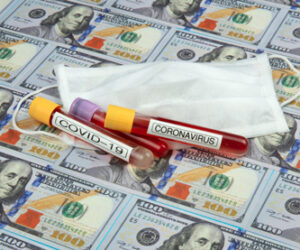
from patients seeking COVID-19 testing at drive-thru testing sites; and using that information to submit false and fraudulent claims for unrelated, medically unnecessary tests or in-office visits that did not occur; (iii) billing for sham telemedicine encounters that did not occur; (iv) misappropriating the Provider Relief Fund (PRF), which was intended to offer financial assistance to medical providers providing needed medical care to Americans suffering from COVID-19; and (v) falsifying COVID-19 vaccination record cards to make it appear that customers received government authorized vaccines.
Collectively, the charges demonstrate DOJ’s commitment to investigate and ultimately prosecute alleged schemes that, in the agency’s view, exploited the pandemic and the nation’s public health emergency. These activities stem from the active work of the COVID-19 Fraud Enforcement Task Force, established in May 2021, to marshal the DOJ’s resources to combat and prevent pandemic-related fraud.
In addition, on the same date as the DOJ’s announcement, the Center for Program Integrity (CPI), Center for Medicare & Medicaid Services, separately
announced that it has taken an additional 28 administrative actions against providers for their alleged involvement in fraud, waste, and abuse schemes related to the delivery of care for COVID-19, as well as schemes that capitalize upon the public health emergency.
For more information, contact:
Riza I. Dagli | 973.403.3103 | rdagli@bracheichler.com
Keith J. Roberts | 973.364.5201 | kroberts@bracheichler.com
James Ko | 973.403.3147 | jko@bracheichler.com
On May 17, 2022, the U.S. Department of Justice (DOJ) announced that the University of Maryland Shore Regional Health (Shore Health) in Easton, Maryland has agreed to pay the United States nearly $300,000 to resolve allegations that it violated the federal False Claims Act. The DOJ advised that the integrity of Medicare and other federal health care programs should be shielded from such fraudulent claims because these programs are funded by taxpayer dollars.
According to the settlement agreement, from January 16, 2014 through July 5, 2018, Shore Health billed Medicare for radiation therapy and diagnostic services. During this time period, Medicare covered radiation therapy and diagnostic services furnished in an outpatient setting when rendered under the “direct supervision” of a physician, meaning that the supervising physician must be immediately available to furnish assistance and direction throughout the performance of the procedure. The physician does not need to be present in the room when the procedure is performed. According to the settlement agreement, during the above time period, Shore Health billed Medicare for radiation therapy and diagnostic services that were not under the direct supervision of a physician because the sole supervising physician was, on many occasions, performing uninterruptable procedures at another location.
The original lawsuit in this matter was brought by a whistleblower who was a former employee of Shore Health.
For more information, contact:
John D. Fanburg, Chair | 973.403.3107 | jfanburg@bracheichler.com
Edward J. Yun | 973.364.5229 | eyun@bracheichler.com
Vanessa Coleman | 973.364.5208 | vcoleman@bracheichler.com
On May 2, 2022, the New Jersey State Assembly introduced Bill A3715, seeking to regulate and limit, in a multitude of ways the use of non-compete covenants in employment agreements. The Bill requires employers to provide 30 business days’ notice of the terms of the non-compete, either before commencement of employment or before the agreement is to become effective. Additionally, it requires that restrictions be no broader than necessary to protect the employer’s legitimate business interests. Notably, the Bill requires explicit written notice in the agreement that before signing, an employee has the right to consult with counsel.
With respect to post-employment enforcement, the Bill:
• limits the temporal scope of non-competes to 12 months following the date of termination.
• provides that restrictive covenant agreements with employers cannot restrict an employee from performing work for a customer or client of the employer, provided that the employee does not initiate or solicit the customer or client.
• requires employers to provide notice, in writing, of their intent to enforce the non-compete no later than 10 days after termination of the employment relationship.
• contains a provision that unless employment has been terminated due to employee misconduct, the employer must pay the employee full salary and benefits for the work that would have been performed during the restricted period.
The new legislation, if enacted, would not apply retroactively to agreements entered into prior to the
Bill’s effective date. The Bill is pending review by the New Jersey Assembly Oversight, Reform, and Federal Relations Committee.
For more information, contact:
Isabelle Bibet-Kalinyak | 973.403.3131 | ibibetkalinyak@bracheichler.com
Joseph M. Gorrell | 973.403.3112 | jgorrell@bracheichler.com
Jonathan J. Walzman | 973.403.3120 | jwalzman@bracheichler.com
On May 2, 2022, Bill A3802 was introduced in the New Jersey Assembly to prohibit medical creditors from reporting any portion of a medical debt, alleged to be unpaid, to any collection or credit reporting agency, bureau, or data collection facility. “Medical creditor” is defined as any person who purchases a debt arising from the receipt of healthcare services, or any health care provider that provides health care services and to whom the consumer owes money for health care services.
For more information, contact:
Lani M. Dornfeld, CHPC | 973.403.3136 | ldornfeld@bracheichler.com
John D. Fanburg, Chair | 973.403.3107 | jfanburg@bracheichler.com
Ed Hilzenrath | 973.403.3114 | ehilzenrath@bracheichler.com
On May 9, 2022, Bill S2452 was introduced in the New Jersey Senate to exempt certain health care practitioner referral restrictions to birthing facilities. Under New Jersey’s self-referral prohibition law, commonly known as the “Codey Law”, a healthcare practitioner may not refer a patient to a health care service in which the practitioner, the practitioner’s immediate family, or the practitioner in combination with the practitioner’s immediate family, has a significant beneficial interest. However, the Codey law has a list of specific exceptions. This bill would add to the list of exceptions by permitting a health care practitioner to refer patients to birthing facilities in which the practitioner has a significant beneficial interest.
For more information, contact:
Ed Hilzenrath | 973.403.3114 | ehilzenrath@bracheichler.com
Keith J. Roberts | 973.364.5201 | kroberts@bracheichler.com
Edward J. Yun | 973.364.5229 | eyun@bracheichler.com

On May 2, 2022, the New Jersey State Board of Pharmacy proposed new rules to permit a pharmacy to have licensed pharmacists and registered pharmacy technicians perform limited pharmaceutical functions at a location other than on the premises of a pharmacy. For example, pharmacists and pharmacy technicians would be permitted to remotely refill authorization and perform data entry of prescription medication information. Any prescription processing functions performed at a remote location would need to be performed by qualified and appropriately trained individuals under safeguards designed to protect the confidentiality of prescription and patient information. However, the proposed rules prohibit the storage or dispensing of any medication from a remote location. Comments on the proposed new rules must be submitted to the Board of Pharmacy by July 1, 2022.

For more information, contact:
John D. Fanburg, Chair | 973.403.3107 | jfanburg@bracheichler.com
Carol Grelecki | 973.403.3140 | cgrelecki@bracheichler.com
Ed Hilzenrath | 973.403.3114 | ehilzenrath@bracheichler.com
Get to know the faces and stories of the people behind the articles in each issue. This month, we invite you to meet Member Edward Hilzenrath, Esq. and Associate Susan Frankel, Esq.
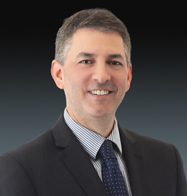
Briefly describe a recent significant transaction, win or client victory. We recently represented an ophthalmology ambulatory surgery center and a related optometric physician practice in an approximately $30 million sale to a joint venture between a hospital and a private equity firm.
Why did you choose to focus your legal practice on healthcare law and the healthcare industry? I chose to focus my legal practice on healthcare law and the healthcare industry because I take great pride in assisting physicians and other health care providers in achieving their practice goals. If I can help health care professionals with their corporate and regulatory challenges, then I believe it allows these professionals to focus their time on providing the best possible health care services to their patients.
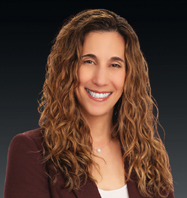
SUSAN FRANKEL, ESQ.
Briefly describe a recent significant transaction, win or client victory. We recently represented a medical practice in negotiating the simultaneous acquisition of two medical practices which presented complicated issues for in-network and out-of-network provider status. We successfully navigated the transaction to enable the client to achieve their goals while maintaining compliance with the contractual and regulatory landscape.
Why did you choose to focus your legal practice on healthcare law and the healthcare industry? I began my legal career as a commercial litigator, but chose to refocus my practice exclusively on healthcare law and the healthcare industry after working in management and as in-house counsel for an expanding multi-state medical practice. Entrenched in the unique issues healthcare providers face, I chose to return to law firm practice to assist the full spectrum of healthcare clients. I am fortunate to be able to guide clients in transactional and regulatory services with a unique perspective of the business behind medicine and the necessary insight for avoiding litigation and compliance pitfalls.
On June 13, 2022, the Department of Health & Human Services (HHS), Office for Civil Rights (OCR) announced the issuance of guidance on how health care providers and health plans can use remote communication technologies to provide audio-only telehealth services when conducted in a HIPAA-compliant manner, including when the OCR’s prior Notification of Enforcement Discretion for Telehealth Remote Communications is no longer in effect. The notification, published on April 21, 2020, authorizes the OCR to waive enforcement penalties against covered entities who are not fully HIPAA compliant in the “good-faith provision” of telehealth during the pandemic, and will remain in effect until the Secretary of HHS declares that the public health no longer exists, or upon the expiration date of the declared public health emergency including any extension thereof.

The OCR guidance is in the form of Q&A and clarifies that, among other things:
• HIPAA covered entities can use remote communication technologies to provide telehealth services, including audio-only services, in compliance with the HIPAA Privacy Rule
• The HIPAA Security Rule does not apply to audio only telehealth services provided through the use of a standard telephone line (traditional landline), but does apply when using electronic communication technologies such as Voice over Internet Protocol (VoIP) and mobile technologies that use electronic media such as the Internet, intra-and extranets, cellular and Wi-Fi
• In some circumstances, a business associate agreement may not be required between the covered entity and the telecommunications provider, for example, when the telecommunications provider has only transient access to PHI because it is acting “merely as a conduit” for the PHI during the telehealth encounter (and is not storing PHI for the provider’s later use).
A recent study has revealed that roughly one quarter of protected health information (PHI) breaches were caused by an employees’ unauthorized access to PHI, where the employee lacked authorization, permission, or other legal authority to access the data. This unauthorized access is extremely problematic as there are inherent dangers including but not limited to financial, reputational, and clinical risks for the patient and the healthcare organization in possession of the PHI.
In order to protect against the unauthorized access of PHI and a potential data breach, it is important for healthcare providers to implement a robust HIPAA training program to assist providers with HIPAA compliance and, reduction or avoidance of unauthorized access to protected health information as well as breach events. Such training programs should include email campaigns such as simulated phishing campaigns and campaigns aimed at educating staff about unauthorized access to medical records. Additionally, the healthcare provider should adopt a PHI access control system and employ email warnings to employees to reduce unauthorized access of patient PHI.
For more information, contact:
Lani M. Dornfeld, CHPC | 973.403.3136 | ldornfeld@bracheichler.com
Paul DeMartino, Jr. | 973.364.5228 | pdemartino@bracheichler.com
Brach Eichler’s Healthcare Law Practice was once again recognized by Chambers USA (2022) as among New Jersey’s top law practices, ranked as top tier (Band 2). In its review, Chambers cites sources describing Brach Eichler as “a talented team of practitioners handling a broad scope of healthcare matters such as corporate governance and compliance, contract negotiation and regulatory advice.” In addition, Chambers USA also recognized the following individual Healthcare members of the firm: John D. Fanburg (Band 1, Healthcare), Joseph M. Gorrell (Senior Statespeople, Healthcare), and Carol Grelecki (Band 3, Healthcare).
On May 17, Healthcare Law Member Lani M. Dornfeld opined in Stat News, “Life or death decisions and no feedback: New study highlights the value of patient tracking, especially in the ER.”
On May 16, Healthcare Member Keith J. Roberts, wrote an article in the New Jersey Law Journal about “What a Medical Provider Should Do When a Patient is Threatening a Lawsuit.”
The following Brach Eichler Healthcare Law Members were named 2022 New Jersey Super Lawyers: John D. Fanburg, Joseph M. Gorrell, Thomas Kamvosoulis and Keith J. Roberts. Shannon Carroll was named a NJ Rising Star. Congratulations to all!
Check out our 2022 NJ Healthcare Market Review presentations and videos from the conference this past May.

Attorney Advertising: This publication is designed to provide Brach Eichler LLC clients and
contacts with information they can use to more effectively manage their businesses. The contents
of this publication are for informational purposes only. Neither this publication nor the lawyers who
authored it are rendering legal or other professional advice or opinions on specific facts or matters.
Brach Eichler LLC assumes no liability in connection with the use of this publication.

Riza I. Dagli | 973.403.3103 | rdagli@bracheichler.com
Lani M. Dornfeld, HLU Editor | 973.403.3136 | ldornfeld@bracheichler.com
John D. Fanburg, Chair | 973.403.3107 | jfanburg@bracheichler.com
Joseph M. Gorrell | 973.403.3112 | jgorrell@bracheichler.com
Edward Hilzenrath | 973.403.3114 | ehilzenrath@bracheichler.com
Keith J. Roberts | 973.364.5201 | kroberts@bracheichler.com
Jonathan J. Walzman | 973.403.3120 | jwalzman@bracheichler.com
Edward J. Yun | 973.364.5229 | eyun@bracheichler.com
Shannon Carroll | 973.403.3126 | scarroll@bracheichler.com
Caroline J. Patterson | 973.403.3141 | cpatterson@bracheichler.com
Paul J. DeMartino, Jr. | 973.364.5228 | pdemartino@bracheichler.com
Susan E. Frankel | 973.364.5209 | sfrankel@bracheichler.com
Emily J. Harris | 973.364.5205 | eharris@bracheichler.com
Cynthia J. Liba | 973.403.3106 | cliba@bracheichler.com
Erika R. Marshall | 973.364.5236 | emarshall@bracheichler.com
Roseland, NJ | New York, NY | West Palm Beach, FL | www.bracheichler.com | 973.228.5700


